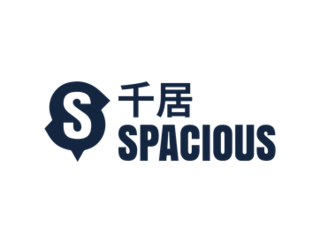
Jackie Chan is a Hong Kong actor, filmmaker, martial artist, and stuntman known for his slapstick acrobatic fighting style, comic timing, and innovative stunts, which he typically performs himself. Chan has been acting since the 1960s, performing in more than 150 films. He is one of the most popular action film stars of all time.

4chan is an anonymous English-language imageboard website. Launched by Christopher "moot" Poole in October 2003, the site hosts boards dedicated to a wide variety of topics, from anime and manga to video games, cooking, weapons, television, music, literature, history, fitness, politics, and sports, among others. Registration is not available and users typically post anonymously. As of 2022, 4chan receives more than 22 million unique monthly visitors, of which approximately half are from the United States.

Social media marketing is the use of social media platforms and websites to promote a product or service. Although the terms e-marketing and digital marketing are still dominant in academia, social media marketing is becoming more popular for both practitioners and researchers. Most social media platforms have built-in data analytics tools, enabling companies to track the progress, success, and engagement of ad campaigns. Companies address a range of stakeholders through social media marketing, including current and potential customers, current and potential employees, journalists, bloggers, and the general public. On a strategic level, social media marketing includes the management of a marketing campaign, governance, setting the scope and the establishment of a firm's desired social media "culture" and "tone."

Wix.com Ltd. is an Israeli software company, publicly listed in the US, that provides cloud-based web development services. It allows users to create HTML5 websites and mobile sites through the use of online drag and drop tools. Along with its headquarters and other offices in Israel, Wix also has offices in Brazil, Canada, Germany, India, Ireland, Japan, Lithuania, Poland, the Netherlands, the United States, Ukraine, and Singapore.

Fortumo was an Estonian company which developed a platform for digital service providers for user growth and monetization.
Greycroft is an American venture capital firm. It manages over $2 billion in capital with investments in companies such as Bird, Bumble, HuffPost, Goop, Scopely, The RealReal, and Venmo. Greycroft was founded in 2006 by Alan Patricof, Dana Settle, and Ian Sigalow. The firm is headquartered in New York City and Los Angeles.

Ben Huh is a South Korean-American internet entrepreneur and the former CEO of The Cheezburger Network, which at its peak in 2010 received 375 million views a month across its 50 sites.
Disqus is an American blog comment hosting service for web sites and online communities that use a networked platform. The company's platform includes various features, such as social integration, social networking, user profiles, spam and moderation tools, analytics, email notifications, and mobile commenting. It was founded in 2007 by Daniel Ha and Jason Yan as a Y Combinator startup.

Instagram is a photo and video sharing social networking service owned by American company Meta Platforms. The app allows users to upload media that can be edited with filters and organized by hashtags and geographical tagging. Posts can be shared publicly or with preapproved followers. Users can browse other users' content by tag and location, view trending content, like photos, and follow other users to add their content to a personal feed.

Pinterest is an American image sharing and social media service designed to enable saving and discovery of information on the internet using images, and on a smaller scale, animated GIFs and videos, in the form of pinboards. The site was created by Ben Silbermann, Paul Sciarra, and Evan Sharp, and had 450 million global monthly active users as of December 2022. It is operated by Pinterest, Inc., based in San Francisco.
Storify was a social network service that let the user create stories or timelines using social media such as Twitter, Facebook and Instagram. Storify was launched in September 2010, and had been open to the public since April 2011. Storify was shut down on May 16, 2018.

Spacious千居 is an online residential real estate marketplace, connecting buyers and tenants with residential and commercial properties throughout Asia. Spacious was founded in 2013 by Asif Ghafoor, former Goldman Sachs and Standard Chartered Bank development manager, senior IT director and application architect, and was part of Hong Kong Science and Technology Parks Corporation incubator program. Spacious is headquartered in Hong Kong.
Ray Chan is a Hong Kong businessman, known for being the CEO and co-founder of entertainment online platform 9GAG. Along with his team of four based in Hong Kong, he started the website as a side project.

Carousell is a Singaporean smartphone and web-based consumer to consumer and business to consumer marketplace for buying and selling new and secondhand goods. Headquartered in Singapore, it also operates in Malaysia, Indonesia, the Philippines, Cambodia, Taiwan, Hong Kong, Macau, Australia, New Zealand and Canada. Carousell is available on both iOS and Android devices.
/pol/, short for "Politically Incorrect", is an anonymous political discussion imageboard on 4chan. As of 2022, it is the most active board on the site. It has had a substantial impact on Internet culture while acting as a platform for far-right extremism; the board is notable for its widespread racist, white supremacist, antisemitic, anti-Muslim, misogynist, and anti-LGBT content. /pol/ has been linked to various acts of real-world extremist violence. It has been described as one of the "[centers] of 4chan mobilization", a title previously considered to have belonged solely to /b/.

Pepe the Frog is a cartoon character and Internet meme created by cartoonist Matt Furie. Designed as a green anthropomorphic frog with a humanoid body, Pepe originated in Furie's 2005 comic Boy's Club. The character became an Internet meme when his popularity steadily grew across websites such as Myspace, Gaia Online, and 4chan in 2008. By 2015, he had become one of the most popular memes used on 4chan and Tumblr. Different types of Pepe memes include "Sad Frog", "Smug Frog", "Angry Pepe", "Feels Frog", and "You will never..." Frog. Since 2014, 'rare Pepes' have been posted on the 'meme market' as if they were trading cards.
7Hops.com Inc., doing business as Static Media, is an American internet company established in 2012 based in Indianapolis. It operates ZergNet, a content recommendation business.

1CAK is an Indonesian entertainment site that provides images and videos uploaded by users, including Internet memes. 1CAK users can select and comment on images. Popular images appear on the main website.
SGAG is a Singaporean social media website and news media company based in Singapore. The company was founded by Karl Mak and Adrian Ang on 14 November 2011, as a Singaporean spin-off of the popular social media website, 9GAG. Since the website's incorporation on April 10, 2013, it has 1.1 million likes on Facebook, 587k followers on Twitter and 701k followers on Instagram as of February 2022.
Storyful is a social media intelligence agency headquartered in Dublin, Ireland that is a subsidiary of Rupert Murdoch's News Corp offering services such as social news monitoring, video licensing, and reputation risk management tools for corporate clients. The startup was launched as the first social media newswire, a content aggregator, verifying news sources and online content in Dublin in 2010 by Mark Little, a former journalist with RTÉ News. Storyful was acquired by Rupert Murdoch’s News Corp in 2013 for USD$25 million.












